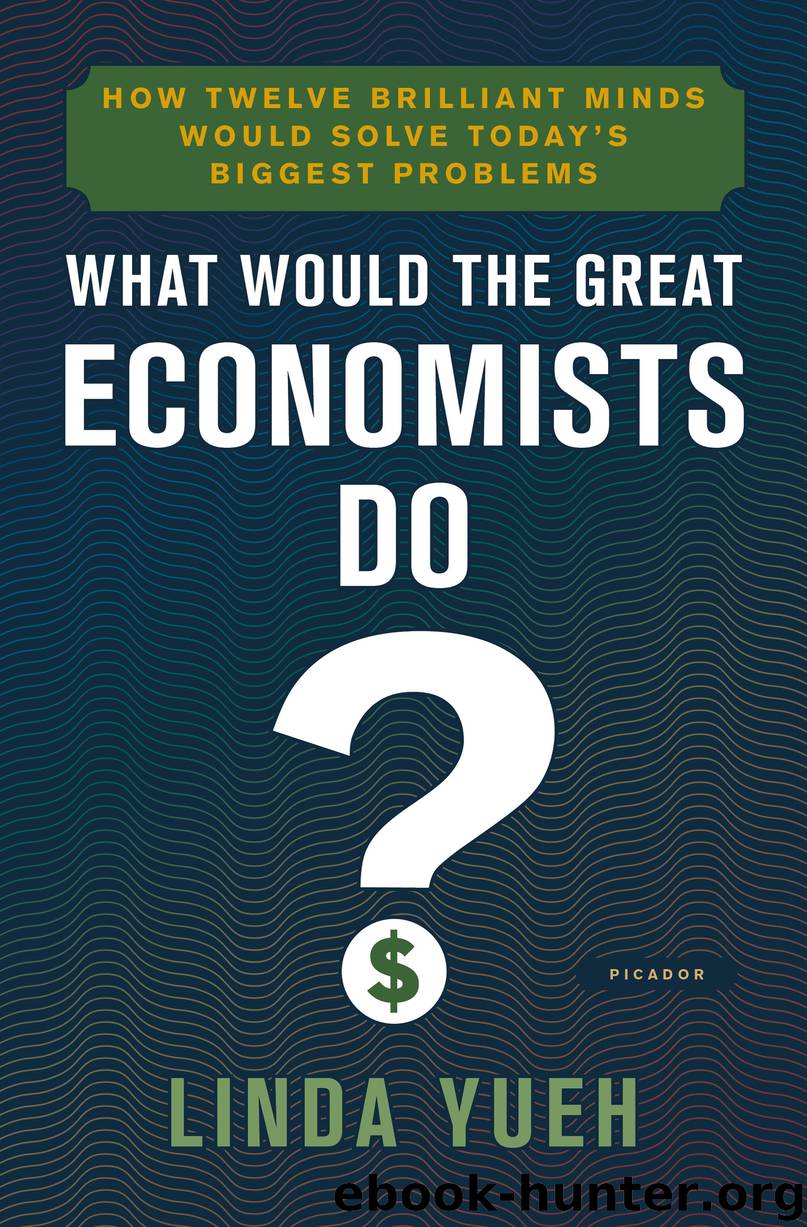What Would the Great Economists Do? by Linda Yueh

Author:Linda Yueh
Language: eng
Format: epub
Publisher: Picador
The life and times of Friedrich Hayek
Friedrich August von Hayek was born in 1899 in Vienna. His father was a doctor employed by the Municipal Ministry of Health, and his mother came from a wealthy landowning family.
From a young age, Friedrich, or Fritz, as his mother called him, was determined to become a scholar. His father’s true passion was botany and he had become a part-time lecturer at the University of Vienna, but above all wanted to become a university professor. This rubbed off on the young Friedrich. He helped his father with his botanical collections and came to believe that professorship was the highest accolade.
Despite this, and unlike many of the Great Economists featured in this book, he was not a first-class pupil. In fact, he showed little interest in studying at school and was actually rather rebellious. At the age of fourteen he failed Latin, Greek and mathematics and had to repeat the grade. Even so, he was still considered bright.
By the time Hayek turned fifteen, his attention was captured by the political excitement stoked up by the events that would lead to the First World War and the collapse of the Austro-Hungarian Empire. His focus turned to political philosophy, including ethics, morals, politics and economics.
Two years later, in March 1917, with the war still continuing, Hayek joined the army. He was still two months short of his eighteenth birthday, and after seven months of training was sent as an officer to the Italian front. He nearly did not survive the war. A piece of his skull was stripped by shrapnel. He nearly died when jumping from an observation balloon without first detaching his headphones, and he was nearly shot down in a dog fight. He had decided he wanted to join the diplomatic service, but before doing so he ended up joining the air force to prove he was not a coward.
However, the war was to end sooner than Hayek expected. In late 1918 he returned from Italy and enrolled at the University of Vienna. He studied law, but became interested in psychology, and eventually chose to become an economist: ‘I was about equally interested in economics and psychology. I finally had to choose between the things I was interested in. Economics at least had a formal legitimation by a degree, while in psychology you had nothing. And since there was no opportunity for a job, I decided for economics.’3
Economics was part of the law faculty and offered, Hayek believed, the best vocational and financial prospects.
Life in Vienna, the capital city of the new Republic of Austria, was tough immediately after the war. Over a million young men from the Austro-Hungarian Empire had perished in the fighting. There were chronic shortages of food and fuel. Hyperinflation, or dramatic price increases, plagued the economy.
As with much of Europe, the conditions were ripe for communism and socialism to take over. There was a sudden acceptance and respect for Marxism, the welfare state and the planned economy. Hayek, though, was never enamoured of Marxism.
Download
This site does not store any files on its server. We only index and link to content provided by other sites. Please contact the content providers to delete copyright contents if any and email us, we'll remove relevant links or contents immediately.
The Meaning of the Library by unknow(2564)
Six Billion Shoppers by Porter Erisman(2296)
Why Nations Fail: The Origins of Power, Prosperity, and Poverty by Daron Acemoglu & James Robinson(2285)
No Time to Say Goodbye(2112)
Red Notice by Bill Browder(2070)
Currency Trading For Dummies by Brian Dolan(1921)
The Economist [T6, 22 Thg9 2017] by The Economist(1915)
Thank You for Being Late by Thomas L. Friedman(1766)
Bitcoin: The Ultimate Guide to the World of Bitcoin, Bitcoin Mining, Bitcoin Investing, Blockchain Technology, Cryptocurrency (2nd Edition) by Ikuya Takashima(1694)
Amazon FBA: Amazon FBA Blackbook: Everything You Need To Know to Start Your Amazon Business Empire (Amazon Empire, FBA Mastery) by John Fisher(1559)
Coffee: From Bean to Barista by Robert W. Thurston(1538)
The Future Is Asian by Parag Khanna(1480)
The Great Economists by Linda Yueh(1453)
Grave New World by Stephen D. King(1418)
How Money Got Free: Bitcoin and the Fight for the Future of Finance by Brian Patrick Eha(1418)
Pocket World in Figures 2018 by The Economist(1414)
Capitalism Without Capital: The Rise of the Intangible Economy by Jonathan Haskel(1391)
The Sex Business by Economist(1378)
Cultural Intelligence by David C. Thomas(1286)
